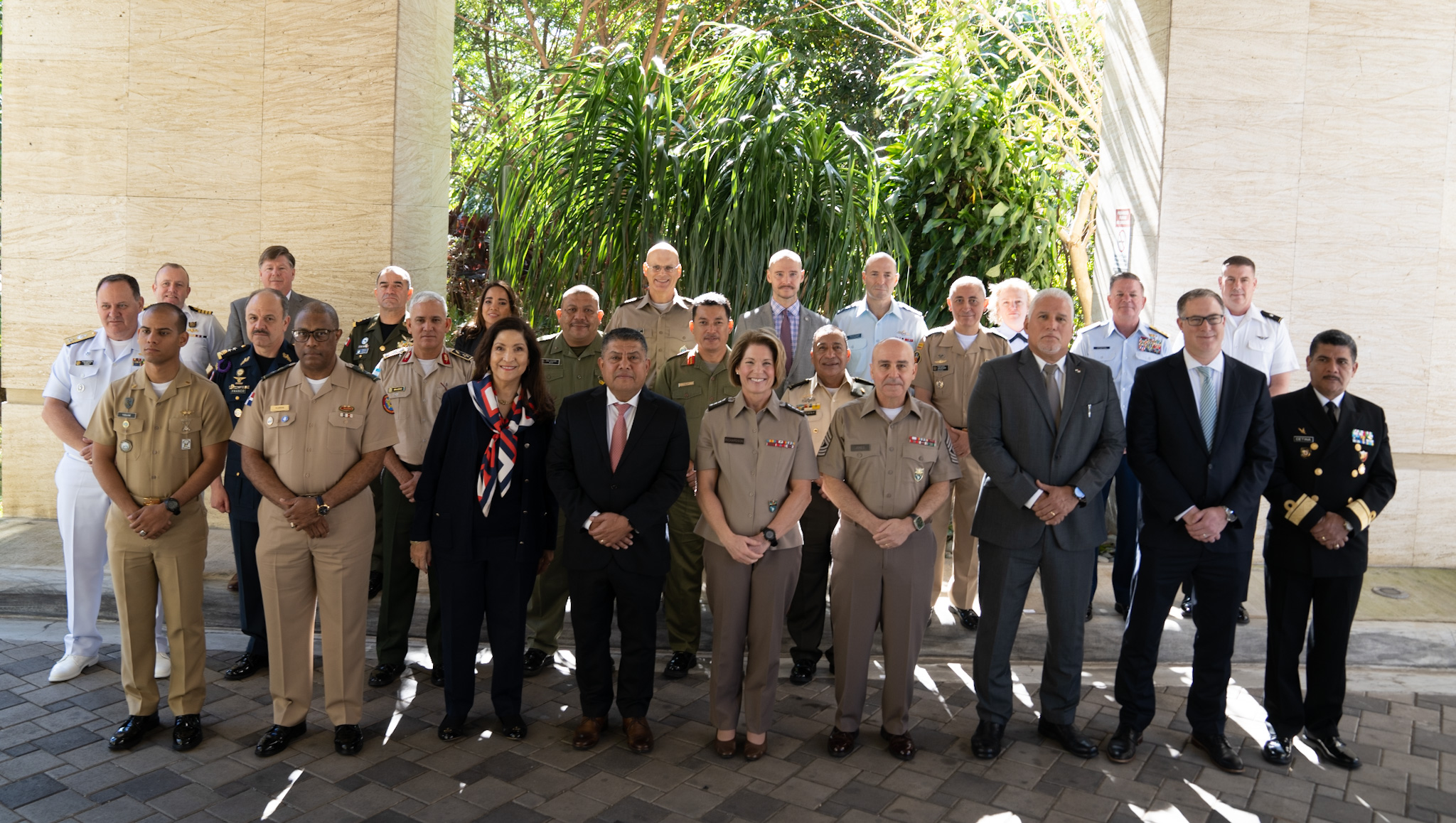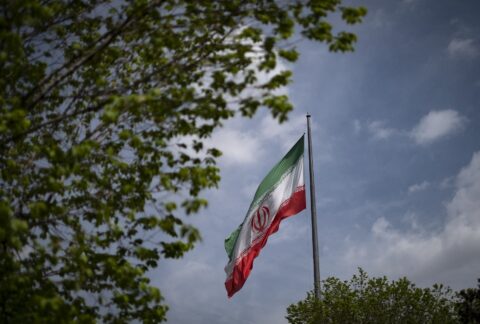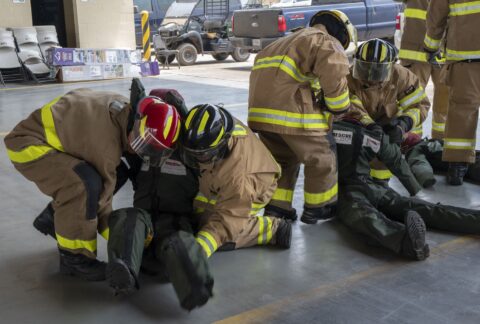“Collaboration opportunities to address 21st century challenges” was the theme that gathered military and security leaders at the Central American Security Conference (CENTSEC) 2023, a U.S. Southern Command- (SOUTHCOM) sponsored event co-hosted by Costa Rica’s Ministry of Public Security, in San José, Costa Rica, February 6-8.
“We gather here at a critical moment when our democracies face a host of cross-cutting challenges that threaten our way of life and could dim the flame of freedom that unites us,” U.S. Army General Laura J. Richardson, SOUTHCOM commander, said in her opening remarks. “Today’s event is so important. It’s a chance to roll up our sleeves and get to work with likeminded democratic partners to synchronize, to share best practices, and lessons learned, and to enhance our interoperability. By working together, we are — and will continue to be — stronger, more prosperous, and more secure than ever before.”
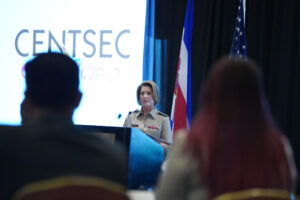
“We are pleased to have you in our country to address crucial regional security issues and define priorities and actions for cooperation against organized crime and other emerging challenges. We have the challenge of protecting our countries from transnational organized crime and its financial, expansive, and violent capacity,” Costa Rica’s Minister of Public Security Jorge Luis Torres Carrillo said as he welcomed delegates to CENTSEC. “We must increase the mechanisms, agreements, and instances of understanding at the national, regional, sub-regional, and hemispheric levels.”
CENTSEC 23 united Belize, Costa Rica, Guatemala, Honduras, Dominican Republic, Panama, and the United States to discuss critical infrastructure protection in the cyber domain, climate change, and human rights. Canada, Colombia, France, Mexico, the Netherlands, and the United Kingdom, were observer countries.
Experts from the U.S. Department of Defense, the U.S. Department of State, and the U.S. National Guard’s State Partnership Program joined the event, as well as the Western Hemisphere Institute for Security Cooperation (WHINSEC), the Inter-American Defense Board, the Inter-American Defense College, and the William J. Perry Center for Hemispheric Defense Studies.
Security challenges in the region
CENTSEC opened with the analysis of critical infrastructure protection in the cyber domain. In this respect, Gen. Richardson said that nation-state adversaries such as China, Russia, Iran, and North Korea, along with non-state actors such as cyber-criminal groups and hacktivist groups like Conti-Group and Guacamaya are increasingly conducting global and regional operations below the threshold of armed conflict, using gray zone methods to establish access, steal sensitive data, and attempt to influence government and private industry. Transportation, hospitality, and financial services were the three regional sectors impacted the most by malign cyber threats in the second half of 2022.
One of those ransomware attack happened in Costa Rica, leaving much of the infrastructure crippled, still dealing with its consequences. Around 30 government institutions, including its Ministry of Finance and the Ministry of Science, Innovation, Technology, and Telecommunications (MICITT) were attack by the pro-Russian ransomware Conti Group on April 17, 2022. The Costa Rican government ultimately declared a state of national emergency on May 8, 2022 and requested international assistance.
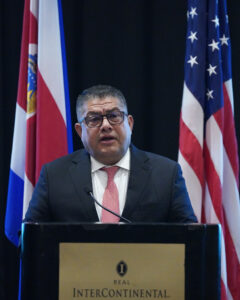
“We have many lessons learned from the 2022 cyberattack. The most important experience is that the threats are going to continue to happen and the forms of attack are going to change, so we have to be resilient and we must improve our technology,” said Paula Brenes Ramírez, director of Digital Governance at the MICITT. She added that it is estimated that Costa Rica lost around $30 million per day, during the time of the attack. In addition, public institutions had to invest in cybersecurity.
Climate change and its implications for defense and security was also part of the CENTSEC agenda. Gen. Richardson affirmed that climate change-related hazards in the region are getting worse every year, and this is a global issue that affects military readiness and drains their resources, so military forces need to ensure they are trained and ready to operate in extreme conditions; at the same time, they must work with allies to build partner capacity and community resilience.
Human Rights discussion was the last topic of the conference. “You are responsible for providing security and protecting all the people who live in this region. If we talk about cybersecurity or climate change, all this generates consequences at the humanitarian level that end up in economic, social, and public order problems, and you are the ones called to attend, guarantee security and protect people’s rights,” said Colombian Air Force Brigadier General (ret.) Juan Carlos Gómez Ramírez. “The military and security forces are and must be governed by the highest standards of respect for the rules and for the laws.”
Guatemalan Army Brigadier General Ardany Vinicio Bautista, vice chief of Defense of the Guatemalan Armed Forces said that military and security forces can and do operate effectively with respect for human rights. “The fact that we have to face criminals doesn’t mean that we have to violate human rights; we know that, and we have taught it in the academies.”
The role of NCOs
Senior enlisted leaders of the region also took part in CENTSEC.
“We can all agree that climate change is an urgent and existential crisis facing all of humanity. However, we must have our forces ready to combat this crisis when called upon,” said Dominican Sergeant Major Luis David, senior enlisted advisor of the Dominican Armed Forces.
His counterpart, Belize Defence Force Sargent Major Wilfredo Majano, spoke about the importance of human rights and how to prevent violations as he encourages command senior enlisted leaders to make an impact in specific areas. “We must train and educate our forces, professionalize, and hold service member accountable. Proper training and education are key for operational effectiveness in a lawful manner. These actions must be instilled in doctrine in order to be able to hold NCOs accountable.”
CENTSEC 23 finalized with the common awareness that working together is key to confront regional security threats.
For Dominican Army Major General Julio Ernesto Florián Pérez, vice minister of Defense for Military Affairs of the Ministry of Defense of the Dominican Republic, all the security threats discussed at CENTSEC are “common problems,” that must require “joint action to address these threats.”

